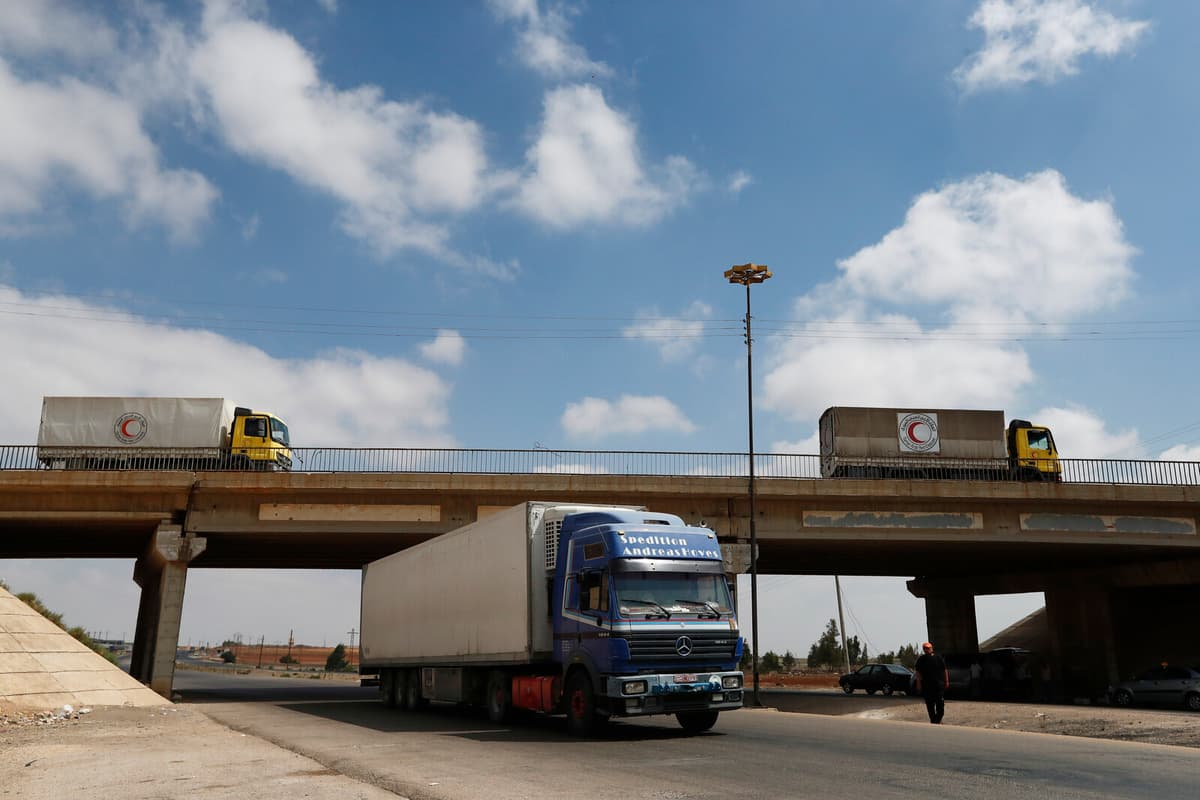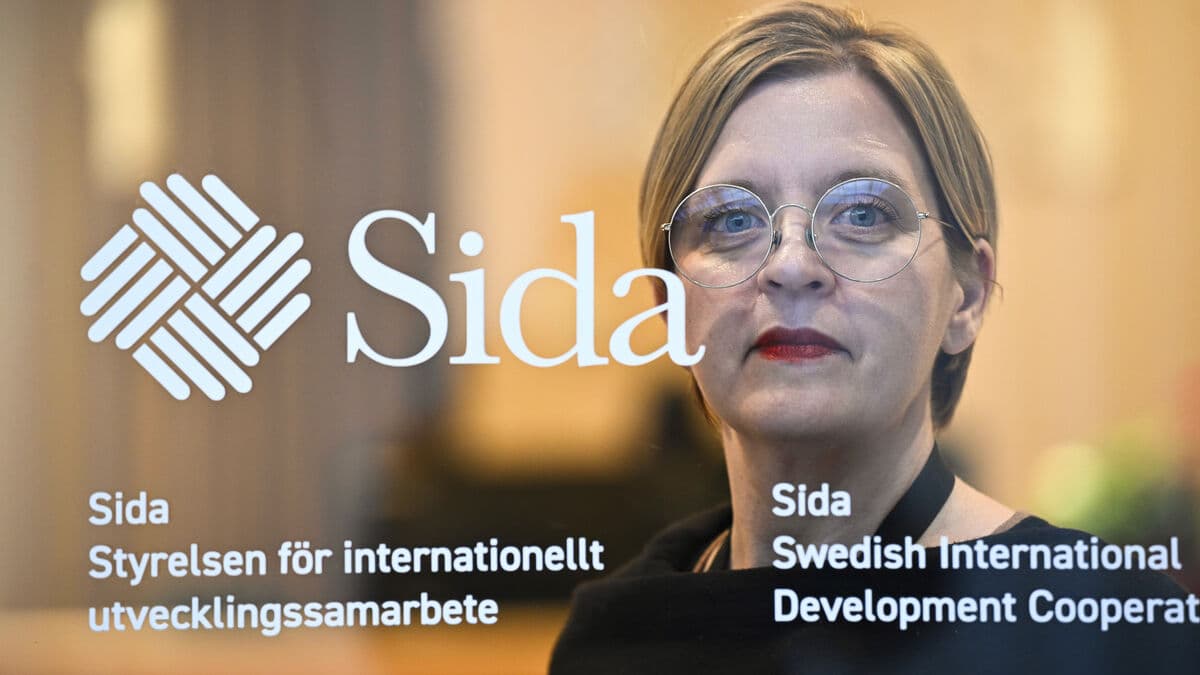The clashes in the city of Sweida have ceased and the ceasefire is being respected, according to the Syrian Ministry of the Interior.
"All clan warriors have been evacuated and the fighting in the city has stopped."
Over 1,100 people have been killed in the Sweida province in the past week, according to the British-based Syrian Observatory for Human Rights (SOHR). In addition, more than 128,000 people have been displaced, according to the UN.
The first convoys of aid trucks arrived in the city on Sunday, according to the Red Cross. This was done "in coordination with the authorities and the local government in Sweida".
Residents of the city, which has around 150,000 inhabitants, have been isolated in their homes without access to electricity or water. The supply of food has also been lacking.
A photographer for the news agency AFP reports that the morgue at the city's central hospital is full and that bodies are lying outside the building.
The clashes between Druze and Bedouins broke out in Sweida a week ago. Syrian government forces later entered the area, but were in turn accused of killing civilian Druze in the fighting.
US envoy to Syria, Tom Barrack, said on Sunday that the country is at a "critical juncture".
"All factions must immediately lay down their arms, cease the violence and stop the recurring acts of revenge," he writes on X.
The Druze are an ethnic group that makes up about three percent of the Syrian population, around half a million people. Their religion is originally a branch of Shia Islam, but they practice a special form of Islam.
The Druze have long had an uncertain position in Syria. During the civil war, the ethnic group had its own militia, partly to defend itself against Muslim fundamentalists who regarded them as heretics.
The Bedouins are nomadic Sunni Muslim ethnic groups that have historically made a living from livestock farming. They belong to different tribes, which in turn consist of clans.
On Sunday, bloody clashes broke out in Sweida in southern Syria, when armed Bedouins kidnapped a Druze vegetable seller. Over 1,000 people have been killed and over 128,000 have been forced to flee, according to AFP. The conflict has deep roots and has been fueled by religious tensions. Often, they have been linked to land conflicts where farming Druze and livestock-herding Bedouins have wanted to use the same areas.
The Syrian government deployed military forces in the province on Tuesday. Government forces took control of several Druze villages, and residents testify to murder, looting, and burned-down houses.
At the same time, neighboring country Israel, which portrays itself as the protector of the Druze due to its own Druze minority, has entered the conflict. Israel has carried out air strikes against both Sweida and the capital Damascus.






